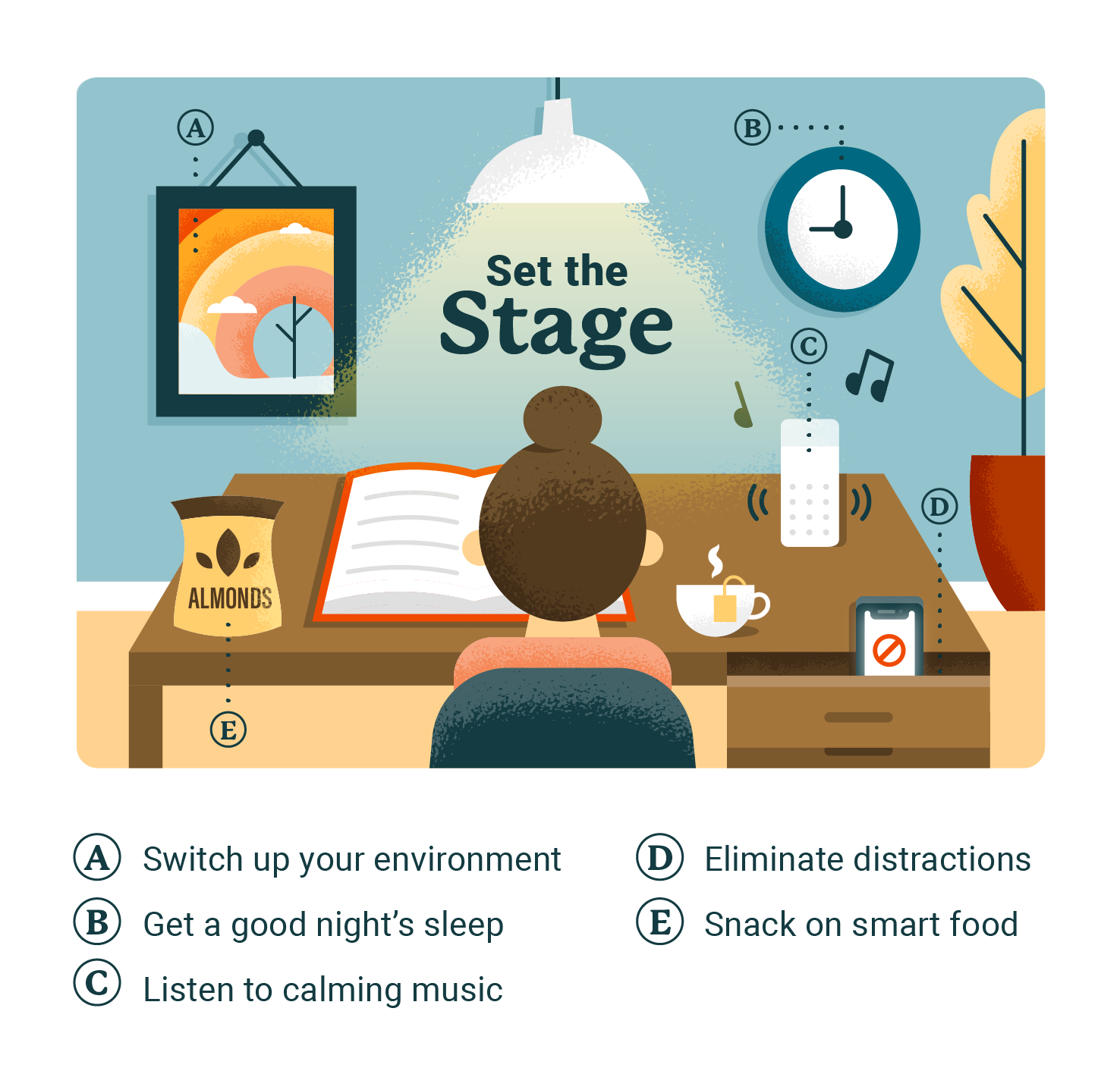Blitz News Digest
Stay updated with the latest trends and insights.
Study Smarter, Not Harder: The Secret Sauce
Unlock your academic potential with proven strategies to study smarter and boost your grades effortlessly! Discover the secret sauce today!
Top 5 Study Techniques to Maximize Learning Efficiency
In today's fast-paced world, maximizing learning efficiency is more crucial than ever. Here are the top 5 study techniques that can help you absorb information more effectively:
- Active Recall: This technique requires you to actively stimulate your memory during the learning process. Instead of passively reading your notes, try to recall the information without looking. This could involve using flashcards or summarizing what you've learned.
- Spaced Repetition: Spread out your study sessions over time to improve retention. By revisiting the material at intervals, you reinforce your memory and make it harder to forget what you've learned.
Continuing with our list, here are the remaining study techniques that can boost your learning:
- Interleaved Practice: Instead of focusing on one subject at a time, mix different topics during your study sessions. This method encourages the brain to differentiate between concepts, leading to a deeper understanding.
- Visual Aids: Utilize diagrams, charts, and visual cues to enhance your learning experience. Visual representations can help simplify complex information and make it easier to recall.
- Summarization: After studying a topic, summarize the key points in your own words. This technique not only reinforces your understanding but also encourages critical thinking.

How to Create a Study Schedule That Works for You
Creating a study schedule that works for you is essential for effective learning. Start by assessing your current commitments and identifying blocks of time that are available for studying. Consider using a planner or digital calendar to block out these periods. It’s also important to prioritize your subjects based on difficulty and upcoming deadlines. For example, if you have an exam in a week, allocate more time to that subject. Be sure to use the following steps to get started:
- List all subjects and topics you need to study.
- Estimate how much time you need for each topic.
- Schedule breaks to avoid burnout during long study sessions.
Once you have your basic schedule mapped out, it’s crucial to remain flexible and adjust as needed. Life can be unpredictable, so adapt your study schedule to accommodate any changes or unforeseen events. Regularly reviewing your progress will help you determine if your approach is effective. Additionally, consider incorporating active learning techniques, such as study groups or teaching the material to someone else, to enhance retention and understanding. Remember, consistency is key:
“The secret of your success is found in your daily routine.”
Is Cramming Effective? Myths and Facts About Studying
Cramming, often viewed as a quick fix for studying, is one of the most debated approaches to learning. Many students believe that cramming right before an exam can lead to improved performance. However, research shows that this method has several drawbacks. For instance, the retention of information learned through cramming is often short-lived, leading to rapid forgetting.
Several myths surround the effectiveness of cramming. A common belief is that staying up all night before an exam will help achieve higher marks, but this is a misconception. In reality, quality over quantity is key. Instead of last-minute memorization, employing spaced repetition and active recall techniques can yield better long-term retention and understanding. Ultimately, effective studying is not just about the amount of information absorbed in a short time, but about how well that information is retained and understood.